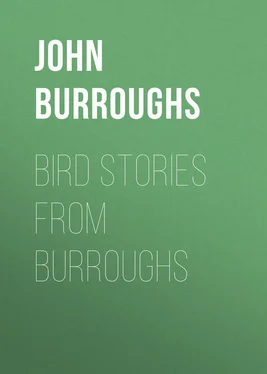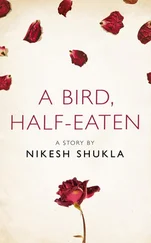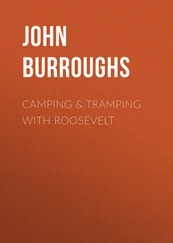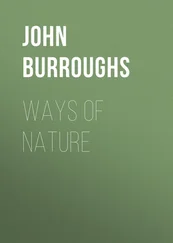John Burroughs - Bird Stories from Burroughs
Здесь есть возможность читать онлайн «John Burroughs - Bird Stories from Burroughs» — ознакомительный отрывок электронной книги совершенно бесплатно, а после прочтения отрывка купить полную версию. В некоторых случаях можно слушать аудио, скачать через торрент в формате fb2 и присутствует краткое содержание. Жанр: foreign_antique, foreign_prose, на английском языке. Описание произведения, (предисловие) а так же отзывы посетителей доступны на портале библиотеки ЛибКат.
- Название:Bird Stories from Burroughs
- Автор:
- Жанр:
- Год:неизвестен
- ISBN:нет данных
- Рейтинг книги:4 / 5. Голосов: 1
-
Избранное:Добавить в избранное
- Отзывы:
-
Ваша оценка:
- 80
- 1
- 2
- 3
- 4
- 5
Bird Stories from Burroughs: краткое содержание, описание и аннотация
Предлагаем к чтению аннотацию, описание, краткое содержание или предисловие (зависит от того, что написал сам автор книги «Bird Stories from Burroughs»). Если вы не нашли необходимую информацию о книге — напишите в комментариях, мы постараемся отыскать её.
Bird Stories from Burroughs — читать онлайн ознакомительный отрывок
Ниже представлен текст книги, разбитый по страницам. Система сохранения места последней прочитанной страницы, позволяет с удобством читать онлайн бесплатно книгу «Bird Stories from Burroughs», без необходимости каждый раз заново искать на чём Вы остановились. Поставьте закладку, и сможете в любой момент перейти на страницу, на которой закончили чтение.
Интервал:
Закладка:
Last summer I made this record in my notebook: "A nest of young robins in the maple in front of the house being fed by a chipping sparrow. The little sparrow is very attentive; seems decidedly fond of her adopted babies. The old robins resent her services, and hustle her out of the tree whenever they find her near the nest. (It was this hurried departure of Chippy from the tree that first attracted my attention.) She watches her chances, and comes with food in their absence. The young birds are about ready to fly, and when the chippy feeds them her head fairly disappears in their capacious mouths. She jerks it back as if she were afraid of being swallowed. Then she lingers near them on the edge of the nest, and seems to admire them. When she sees the old robin coming, she spreads her wings in an attitude of defense, and then flies away. I wonder if she has had the experience of rearing a cow-bunting?" (A day later.) "The robins are out of the nest, and the little sparrow continues to feed them. She approaches them rather timidly and hesitatingly, as if she feared they might swallow her, then thrusts her titbit quickly into the distended mouth and jerks back."
Whether the chippy had lost her own brood, whether she was an unmated bird, or whether the case was simply the overflowing of the maternal instinct, it would be interesting to know.
THE CHEWINK
The chewink is a shy bird, but not stealthy. It is very inquisitive, and sets up a great scratching among the leaves, apparently to attract your attention. The male is perhaps the most conspicuously marked of all the ground-birds except the bobolink, being black above, bay on the sides, and white beneath. The bay is in compliment to the leaves he is forever scratching among, – they have rustled against his breast and sides so long that these parts have taken their color; but whence come the white and the black? The bird seems to be aware that his color betrays him, for there are few birds in the woods so careful about keeping themselves screened from view. When in song, its favorite perch is the top of some high bush near to cover. On being disturbed at such times, it pitches down into the brush and is instantly lost to view.
This is the bird that Thomas Jefferson wrote to Wilson about, greatly exciting the latter's curiosity. Wilson was just then upon the threshold of his career as an ornithologist, and had made a drawing of the Canada jay which he sent to the President. It was a new bird, and in reply Jefferson called his attention to a "curious bird" which was everywhere to be heard, but scarcely ever to be seen. He had for twenty years interested the young sportsmen of his neighborhood to shoot one for him, but without success. "It is in all the forests, from spring to fall," he says in his letter, "and never but on the tops of the tallest trees, from which it perpetually serenades us with some of the sweetest notes, and as clear as those of the nightingale. I have followed it for miles, without ever but once getting a good view of it. It is of the size and make of the mockingbird, lightly thrush-colored on the back, and a grayish-white on the breast and belly. Mr. Randolph, my son-in-law, was in possession of one which had been shot by a neighbor," etc. Randolph pronounced it a flycatcher, which was a good way wide of the mark. Jefferson must have seen only the female, after all his tramp, from his description of the color; but he was doubtless following his own great thoughts more than the bird, else he would have had an earlier view. The bird was not a new one, but was well known then as the ground-robin. The President put Wilson on the wrong scent by his erroneous description, and it was a long time before the latter got at the truth of the case. But Jefferson's letter is a good sample of those which specialists often receive from intelligent persons who have seen or heard something in their line very curious or entirely new, and who set the man of science agog by a description of the supposed novelty, – a description that generally fits the facts of the case about as well as your coat fits the chair-back. Strange and curious things in the air, and in the water, and in the earth beneath, are seen every day except by those who are looking for them, namely, the naturalists. When Wilson or Audubon gets his eye on the unknown bird, the illusion vanishes, and your phenomenon turns out to be one of the commonplaces of the fields or woods.
THE BROWN THRASHER
Our long-tailed thrush, or thrasher, delights in a high branch of some solitary tree, whence it will pour out its rich and intricate warble for an hour together. This bird is the great American chipper. There is no other bird that I know of that can chip with such emphasis and military decision as this yellow-eyed songster. It is like the click of a giant gunlock. Why is the thrasher so stealthy? It always seems to be going about on tip-toe. I never knew it to steal anything, and yet it skulks and hides like a fugitive from justice. One never sees it flying aloft in the air and traversing the world openly, like most birds, but it darts along fences and through bushes as if pursued by a guilty conscience. Only when the musical fit is upon it does it come up into full view, and invite the world to hear and behold.
Years pass without my finding a brown thrasher's nest; it is not a nest you are likely to stumble upon in your walk; it is hidden as a miser hides his gold, and watched as jealously. The male pours out his rich and triumphant song from the tallest tree he can find, and fairly challenges you to come and look for his treasures in his vicinity. But you will not find them if you go. The nest is somewhere on the outer circle of his song; he is never so imprudent as to take up his stand very near it. The artists who draw those cozy little pictures of a brooding mother bird, with the male perched but a yard away in full song, do not copy from nature. The thrasher's nest I found was thirty or forty rods from the point where the male was wont to indulge in his brilliant recitative. It was in an open field under a low ground-juniper. My dog disturbed the sitting bird as I was passing near. The nest could be seen only by lifting up and parting away the branches. All the arts of concealment had been carefully studied. It was the last place you would think of looking in, and, if you did look, nothing was visible but the dense green circle of the low-spreading juniper. When you approached, the bird would keep her place till you had begun to stir the branches, when she would start out, and, just skimming the ground, make a bright brown line to the near fence and bushes. I confidently expected that this nest would escape molestation, but it did not. Its discovery by myself and dog probably opened the door for ill luck, as one day, not long afterward, when I peeped in upon it, it was empty. The proud song of the male had ceased from his accustomed tree, and the pair were seen no more in that vicinity.
Конец ознакомительного фрагмента.
Текст предоставлен ООО «ЛитРес».
Прочитайте эту книгу целиком, купив полную легальную версию на ЛитРес.
Безопасно оплатить книгу можно банковской картой Visa, MasterCard, Maestro, со счета мобильного телефона, с платежного терминала, в салоне МТС или Связной, через PayPal, WebMoney, Яндекс.Деньги, QIWI Кошелек, бонусными картами или другим удобным Вам способом.
Интервал:
Закладка:
Похожие книги на «Bird Stories from Burroughs»
Представляем Вашему вниманию похожие книги на «Bird Stories from Burroughs» списком для выбора. Мы отобрали схожую по названию и смыслу литературу в надежде предоставить читателям больше вариантов отыскать новые, интересные, ещё непрочитанные произведения.
Обсуждение, отзывы о книге «Bird Stories from Burroughs» и просто собственные мнения читателей. Оставьте ваши комментарии, напишите, что Вы думаете о произведении, его смысле или главных героях. Укажите что конкретно понравилось, а что нет, и почему Вы так считаете.












